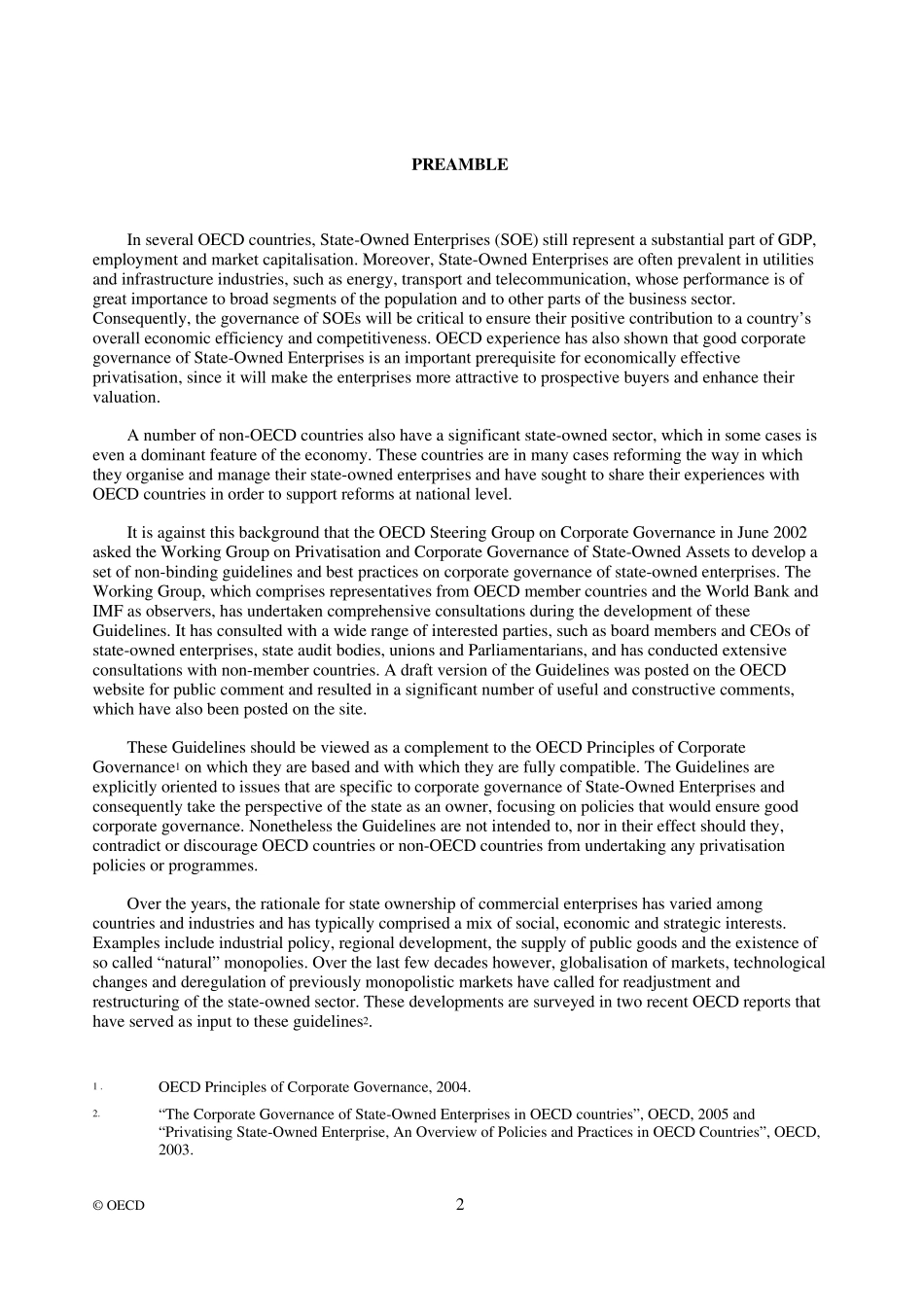© OECD . OECD GUIDELINES ON THE CORPORATE GOVERNANCE OF STATE-OW NED ENTERPRISES © OECD 2 PREAMBLE In several OECD countries, State-Owned Enterprises (SOE) still represent a substantial part of GDP, employment and market capitalisation. Moreover, State-Owned Enterprises are often prevalent in utilities and infrastructure industries, such as energy, transport and telecommunication, whose performance is of great importance to broad segments of the population and to other parts of the business sector. Consequently, the governance of SOEs will be critical to ensure their positive contribution to a country’s overall economic efficiency and competitiveness. OECD experience has also shown that good corporate governance of State-Owned Enterprises is an important prerequisite for economically effective privatisation, since it will make the enterprises more attractive to prospective buyers and enhance their valuation. A number of non-OECD countries also have a significant state-owned sector, which in some cases is even a dominant feature of the economy. These countries are in many cases reforming the way in which they organise and manage their state-owned enterprises and have sought to share their experiences with OECD countries in order to support reforms at national level. It is against this background that the OECD Steering Group on Corporate Governance in June 2002 asked the Working Group on Privatisation and Corporate Governance of State-Owned Assets to develop a set of non-binding guidelines and best practices on corporate governance of state-owned enterprises. The Working Group, which comprises representatives from OECD member countries and the World Bank and IMF as observers, has undertaken comprehensive consultati...


